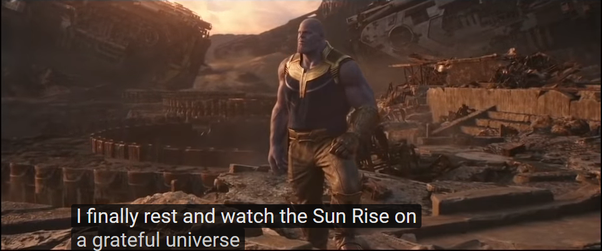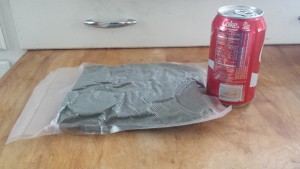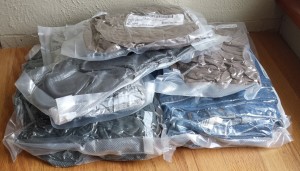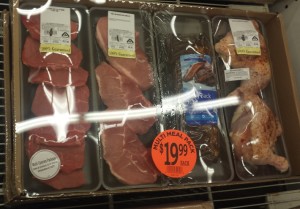I was talking to someone the other day and they mentioned that their wife, who had been ‘on board’ with his interest in preparedness has, as of late, become more approving of his interest. I told him that he was not the first person to experience this lately. I know several people whose wives tolerated their interest in preparedness as a sort of ‘quirky guy thing’ and have suddenly discovered that they rather appreciate the increased feeling of security it provides.
But, any situation threatening enough to make an on-the-fence/humouring spouse suddenly a believer is also threatening enough that the old “I’ll just come to your place in case anything happens” scenario a bit more dangerous.
This is brought to mind by a dream I had the other night. I dreamt that there was a Mount St Helens type of explosion off on the horizon and my neighbors and I stood on the street and watched half a mountain disappear. Then we watched it re-appear as Volkswagen-size chunks of earth came crashing down around us, destroying homes, cars, power lines, etc. In the dream, I told me neighbor not to worry and to follow me into my basement. The were, naturally, impressed. And I thought “This may have been a bad idea.” Then I woke up.
The message? In calmer times it’s a good idea to obey the first rule of Prep Club. In times of…excitement…it is even more vital. The classic scenario is that the world comes to an end and everyone tries to get into your bomb shelter. But things don’t have to reach that level for secrecy to be your friend. Even without bombs dropping or the dead roaming the land, you still have a ton of resources tied up in ammo, guns, radios, gold, and a dozen other things that your garden-variety burglar or thief is interested in. So, yeah, the first rule of Prep Club is that you don’t talk about Prep Club. (Which is ironic since I am, at the moment, talking about Prep Club.)
I suppose that’s one of my biggest gripes about ‘survival groups’ or ‘mutual aid’ groups. You’re trusting people whom you otherwise might not even spend time with ‘in real life’ with information and location about very valuable things you have. Personally, I find it hard to hand out that level of trust. This is why, in my opinion, the best ‘survival groups’ are very small and have a common social denominator that is extremely intimate. Family, for example, is probably the most intimate social group you can have. And even then, we all have that Aunt Jane or Cousin Joe who we would probably not trust with that sort of information. So if something as closely knit as a family has members who you’d not want ‘in your inner circle’, imagine what it’d be like when you start looking outside that family group. All relationships are transitory. The people you trusted with the GPS coords to your stash buried in the National Forest may, for whatever reason, wind up no longer being part of your circle. And when they depart, they take that information with them and you wind up having to change locks and rebury caches.
On the other hand, you could play it close to the vest and your family may not even know about all the things you’ve put away for them. And you get caught away from home (or worse, killed in the crisis) and they have no idea that their salvation was hidden in the basement behind the grandma’s old furniture or sitting in the rafters of the garage.
It’s definitely interesting times that we are living in. And it is reasonably possible that some aspects of the preparations we have made (almost certainly the financial ones, at least) will wind up coming in handy and getting put to use. It’s because of this increased likelihood, and the increased awareness (and desperation) of others, that keeping information about our personal WalMart we’ve created in the basement should stay under our tinfoil hat.
Ben Franklin said that ‘three can keep a secret if two of them are dead’. I wouldn’t go quite that far but, in todays heightened environment, I definitely do keep a pretty tight hand on who I let in my house and who I talk about this sorta stuff with.
 “The price of freedom is the willingness to do sudden battle anywhere, any time and with utter recklessness.” ―
“The price of freedom is the willingness to do sudden battle anywhere, any time and with utter recklessness.” ― 








